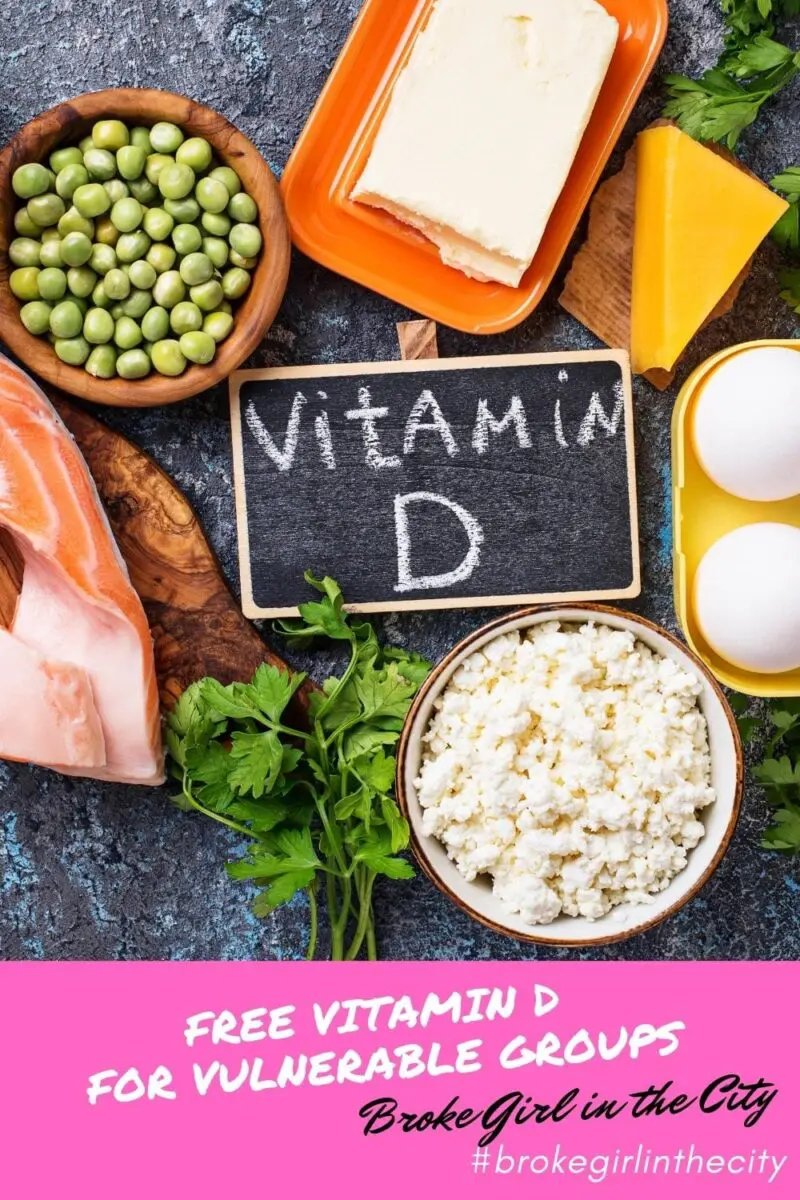
Free winter supply of Vitamin D for vulnerable groups
2.7 million vulnerable individuals in England will be offered a free winter supply of Vitamin D by the government in January. As someone who is clinically extremely vulnerable, I was thrilled to receive this news.
- Deliveries will be made to clinically extremely vulnerable and care home residents
- Higher risk of vitamin D deficiency as these groups have spent more time indoors this year
How to claim if you’re clinically extremely vulnerable:
The Government is extending the offer of a free 4-month supply of vitamin D supplements for all adults who are clinically extremely vulnerable to support general health. If you have not already applied you can register at https://www.nhs.uk/get-vitamin-d. Further guidance on how to safely take vitamin D supplements will be provided during the opt-in process. You will need your NHS number.
Once you have applied – What happens next?
The NHS website states that they will check if your details are on the shielded patient’s list and if you are aged 18 or over.
Then if they match your details:
- they will email you to let you know your application was successful by the end of February 2021, with your reference number and DHSC contact details for any queries
- share your name and address with the partner provider so they can send your supplements
If you have not supplied your email address, the NHS will share your name and address with the partner provider, but we will not be able to let you know if your application was successful.
Care homes to automatically receive supplements
All care homes will automatically receive a provision for their residents. While individuals on the clinically extremely vulnerable list will receive a letter inviting them to opt-in for a supply to be delivered directly to their homes. Deliveries will be free of charge, starting in January, and will provide 4 months’ worth of supplements to last people through the winter months.
What are the benefits of Vitamin D?
The supplements will support general health, in particular bone and muscle health. This is particularly important this year as these individuals are more likely to have been indoors for extended periods due to measures introduced to stop the spread of COVID-19.
Evidence of the link of vitamin D to COVID-19 is still being researched with larger scale trials needed. In the meantime, the Secretary of State has asked the National Institute for Health and Care Excellence (NICE) and Public Health England (PHE) to re-review the existing evidence. The government will publish its findings towards the end of the year.
Secretary of State for Health and Social Care Matt Hancock said:
Because of the incredible sacrifices made by the British people to control the virus, many of us have spent more time indoors this year and could be deficient in vitamin D.
The government is taking action to ensure vulnerable individuals can access a free supply to last them through the darker winter months. This will support their general health, keep their bones and muscles healthy and crucially reduce the pressure on our NHS.
A number of studies indicate vitamin D might have a positive impact in protecting against COVID-19. I have asked NICE and PHE to re-review the existing evidence on the link between COVID-19 and vitamin D to ensure we explore every potential opportunity to beat this virus.
Dr Alison Tedstone, Chief Nutritionist at Public Health England, said:
Vitamin D is important for our bone and muscle health.
We advise that everyone, particularly the elderly, those who don’t get outside and those with dark skin, takes a vitamin D supplement containing 10 micrograms (400IU) every day.
This year, the advice is more important than ever with more people spending more time inside, which is why the government will be helping the clinically extremely vulnerable to get vitamin D.
PHE advise everyone to take 10 micrograms daily
The advice from PHE is for everybody to take 10 micrograms (400 IU) of vitamin D a day between October and early March to keep bones and muscles healthy.
PHE advises people who are more at risk of not having enough vitamin D to take a vitamin supplement all year round. A range of products and doses are available at supermarkets, pharmacies and other retailers.
Anyone who is able to purchase a vitamin D supplement and start taking them now is advised to do so, even if you are also eligible for a delivery later in the year.
The Department of Health and Social Care (DHSC) will provide further information and guidance for all nursing and residential care home providers in the coming weeks.

Sources of vitamin D
Last year I went to the hospital for lots of blood tests for fatigue. The Doctor and I couldn’t understand what was making mew feel this way. We found out that I was deficient in Vitamin D and was prescribed increased dosage of vitamin tablets. Having shielded for 3 months this year, I kept taking them as I was not seeing any sunlight.
From about late March/early April to the end of September, most people should be able to get all the vitamin D they need from sunlight. The body creates vitamin D from direct sunlight on the skin when outdoors.
But between October and early March, we do not get enough vitamin D from sunlight. Read more about vitamin D and sunlight on the NHS website.
Sources include:
- oily fish – such as salmon, sardines, herring and mackerel
- red meat
- liver
- egg yolks
- fortified foods – such as some fat spreads and breakfast cereals
Another source of vitamin D is dietary supplements.
Buy on Amazon
Vitabiotics | Ultra Vitamin D3 Tablets | 1 x 96s
| RRP: | |
| Price: | £3.63 (£0.04 / count) & FREE Delivery on orders dispatched by Amazon over £20.00 . Delivery Details |
| You Save: | £1.47 (29%) |
IF YOU HAVE ENJOYED THIS ARTICLE, WHY NOT READ…?
